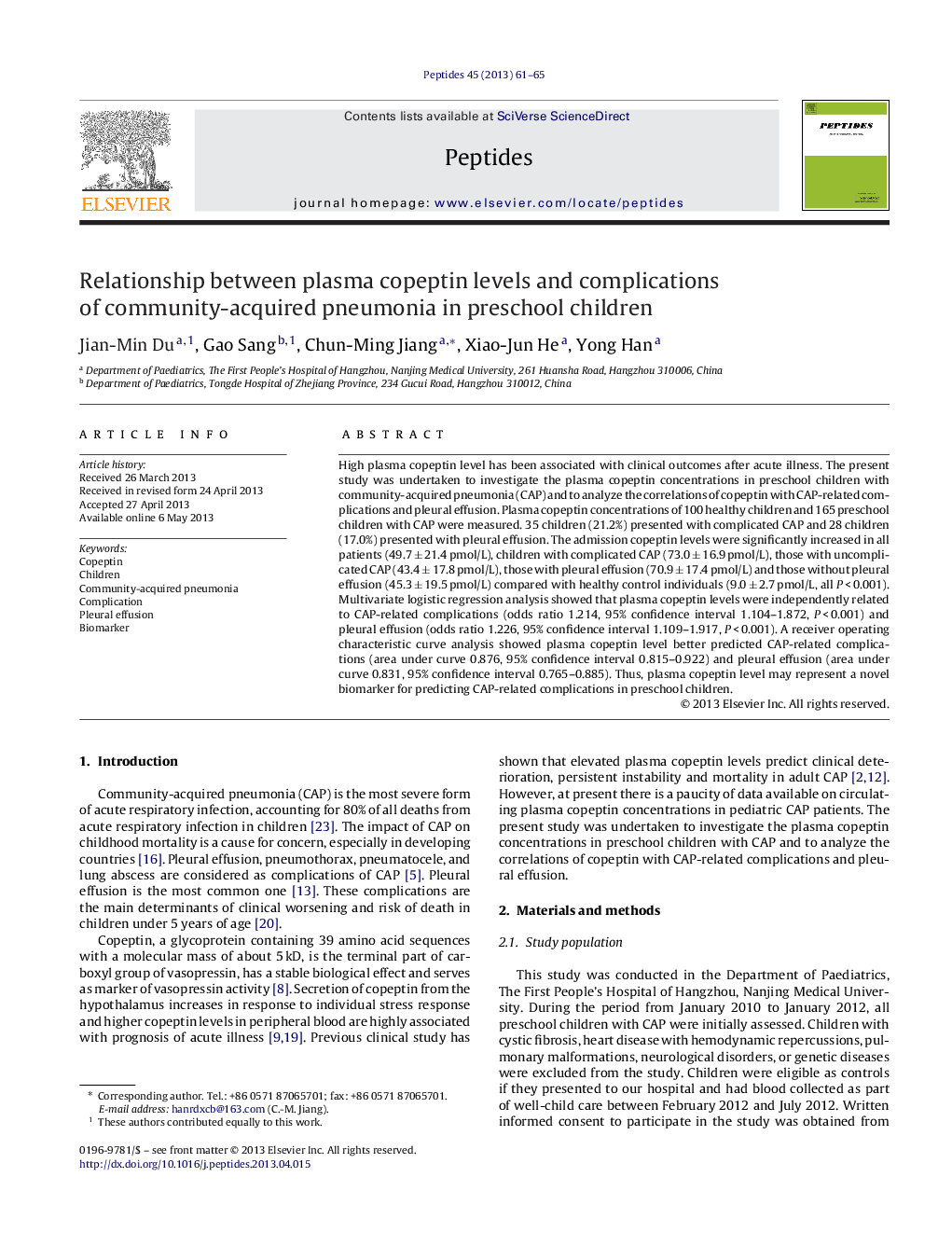| Article ID | Journal | Published Year | Pages | File Type |
|---|---|---|---|---|
| 8348670 | Peptides | 2013 | 5 Pages |
Abstract
High plasma copeptin level has been associated with clinical outcomes after acute illness. The present study was undertaken to investigate the plasma copeptin concentrations in preschool children with community-acquired pneumonia (CAP) and to analyze the correlations of copeptin with CAP-related complications and pleural effusion. Plasma copeptin concentrations of 100 healthy children and 165 preschool children with CAP were measured. 35 children (21.2%) presented with complicated CAP and 28 children (17.0%) presented with pleural effusion. The admission copeptin levels were significantly increased in all patients (49.7 ± 21.4 pmol/L), children with complicated CAP (73.0 ± 16.9 pmol/L), those with uncomplicated CAP (43.4 ± 17.8 pmol/L), those with pleural effusion (70.9 ± 17.4 pmol/L) and those without pleural effusion (45.3 ± 19.5 pmol/L) compared with healthy control individuals (9.0 ± 2.7 pmol/L, all P < 0.001). Multivariate logistic regression analysis showed that plasma copeptin levels were independently related to CAP-related complications (odds ratio 1.214, 95% confidence interval 1.104-1.872, P < 0.001) and pleural effusion (odds ratio 1.226, 95% confidence interval 1.109-1.917, P < 0.001). A receiver operating characteristic curve analysis showed plasma copeptin level better predicted CAP-related complications (area under curve 0.876, 95% confidence interval 0.815-0.922) and pleural effusion (area under curve 0.831, 95% confidence interval 0.765-0.885). Thus, plasma copeptin level may represent a novel biomarker for predicting CAP-related complications in preschool children.
Related Topics
Life Sciences
Biochemistry, Genetics and Molecular Biology
Biochemistry
Authors
Jian-Min Du, Gao Sang, Chun-Ming Jiang, Xiao-Jun He, Yong Han,
